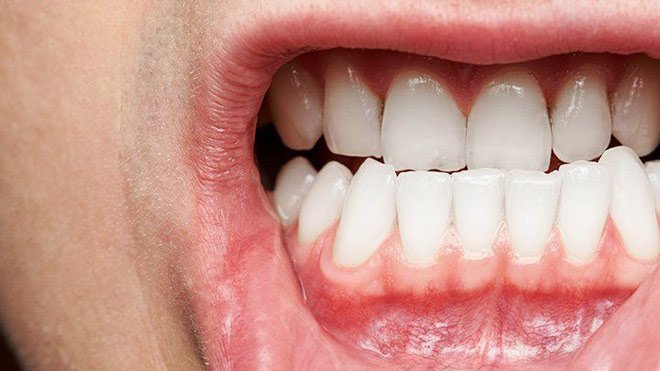How Important is Good Dental Hygiene?
"The authors point to possible reasons for an association between oral bacteria (oral microbiota) and oesophageal and gastric cancer, with evidence from other studies suggesting that tannerella forsythia and porphyromonas gingivalis - members of the 'red complex' of periodontal pathogens - were associated with the presence or risk of oesophageal cancer."
"Another possible reason is that poor oral hygiene and periodontal disease could promote the formation of endogenous nitrosamines known to cause gastric cancer through nitrate-reducing bacteria."
"This was an observational study, so no firm conclusions can be drawn about cause and effect, and the researchers cannot rule out the possibility that some of the observed risk may be due to other unmeasured (confounding) factors."
"However, they conclude: "Together, these data support the importance of oral microbiome in oesophageal and gastric cancer. Further prospective studies that directly assess oral microbiome are warranted to identify specific oral bacteria responsible for this relationship. The additional findings may serve as readily accessible, non-invasive biomarkers and help identify individuals at high risk for these cancers."
EurekAlert
 |
| Image: © Glayan/Thinkstock |
"The study authors who found the link between cancer and oral health came to their conclusions using self-reported information from questionnaires given to some 65,869 older women as part of the Women's Health Initiative Observational Study, which began collecting information in 1994. The women in the study were asked if a dentist or dental hygienist had ever told them they had gum disease."
"Study authors followed these women for an average of eight years to see who went on to develop cancer. More than 7,000 cancers occurred among the women during the study period, and researchers found that women with periodontal disease had a 14% higher overall cancer risk than women without gum disease — and a higher risk specifically of breast, lung, and esophageal cancers, and melanoma."
Harvard Health Publishing, Harvard Medical School
"The link between oral health and heart health may seem an unlikely one. But proper care for your teeth and gums may help lower your risk for developing heart disease.
Gum disease leads to inflammation, the immune system's response to infection and injury. The chemicals produced by inflammation of the gums get into the blood. When they reach the heart, those chemicals may increase inflammation inside plaques of atherosclerosis in the arteries of the heart, thereby increasing the risk of heart attacks and strokes."
"That association is controversial, however. 'That's because people with severe gum disease have many of the usual risk factors for coronary artery disease, such as age, diabetes, poor diet, and untreated diseases', says cardiologist Dr. Peter Zimetbaum, an associate professor at Harvard Medical School."
"While some studies have shown that cleaning and flossing result in lower levels of inflammatory markers and other improvements in known risk factors for heart disease, it's not yet clear if good oral care will prevent heart attacks, stroke, or death from heart disease, says Dr. Harvey White, a member of a Harvard affiliated academic research group that studies cardiovascular disease. Even so, it will certainly help protect your dental health."
Harvard Health Publishing, Harvard Medical School
 |
| Representational Image (Source: Internet) |
A new study published in the journal Gut, a specialist periodical by the British Medical Journal, suggests that gum disease has a part to play in risking throat and stomach cancer. The Harvard University study emphasized that the risk, calculated at 50 percent, was higher among people who had experienced tooth loss given that gum disease becomes an entry point for bacteria to proliferate through blood. On the good news side, mild instances of gum disease are readily treatable with practising good oral hygiene.
The research studied 98,459 women and 49,685 men over a period of more than twenty years for rates of throat and stomach cancer. The study assessed dental measures, demographics, lifestyle and diet. The link between bacteria commonly found in the mouth and esophageal cancer was validated in previous studies which results this more recent one confirms given its large sample size, long-term followup and "rigorous control" for lifestyle impacts.
 |
| Porphyromonas gingivalis bacteria, Credit:Kateryna Kon / Shutterstock |
During the 22 to 28 followup years 199 cases of esophageal cancer and 238 cases of gastric cancer occurred. A related history of gum disease was seen to be associated with a 43 percent and 52 percent increased risk of esophageal cancer and gastric cancer respectively. Risk of esophageal and gastric cancer for people who lost two or more teeth were higher as well, compared to people with no tooth loss experience; 42 percent and 33 percent respectively.
A history of gum disease and who may or may not have had tooth loss were linked with a 59 percent increased risk of esophageal cancer in comparison to people lacking a history of periodontal disease, and no loss of teeth. Periodontal disease results in abnormal gum conditions reflecting decreased health of gums which recede to expose the roots of teeth, resulting in vulnerability of tooth stability, and eventually tooth loss.
Finally, a history of gum disease resulting in no loss of teeth gave people a 50 percent increased risk of gastric cancer, rising to 68 percent when people have a history of both gum disease and tooth loss, in comparison to others with no history and no loss of teeth.
 |
| Mouth health often reflects general health, according to Prof Leo Stassen, president of the Irish Dental Association. Photograph: John Giles/PA Wire |
Labels: Cancer, Gum Disease, Harvard University, Heart Health, Research

0 Comments:
Post a Comment
<< Home